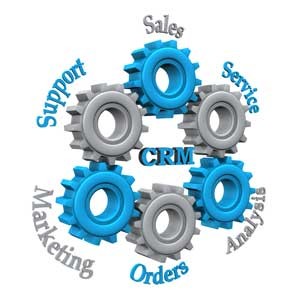Tags
Benefits of Salesforce CRM, crm marketing services Perth, Crm solution Perth, dynamics crm, microsoft crm perth, perth crm hire, Sales Management Perth, salesforce perth
A reasonably common question which our consultants have to answer, is “what is CRM for”, hopefully this piece can help explain this.
The question is, “what is a CRM for?” This is more complex that it first appears, as the CRM is a tool which can be used in different ways by different people. That’s the trap many first-times (and indeed many others) CRM customers fall into: looking at the CRM implementation from the perspective of one type of business user, or only superficially considering how it affects others. For example:
CRM systems’ dashboards provide an excellent way for management to get a sense of what is happening in sales. Management can track opportunities, run forecasts, and even see differences in the way salespeople work. The problem is that this information may not be helpful, and can easily lead to a data-focused micromanagement view. One company I did consultancy for used its management dashboard to track how frequently salespeople logged into the system, in order to encourage adoption.
This means that a CRM is many things to many people, and looking at your own company you can probably add several more to my list. However there is one thing that it is not, and that is a tool which can exist in isolation from the business.
A customer of mine carried out their first CRM implementation a few years ago and they consider that it failed because integration was not at the core of the project. In this case, “failed” means that although the CRM works perfectly well, they are unable to provide real-time relevant management analytics, and sales see it as a management hoop to jump through rather than delivering value.
My customer is currently undertaking a second attempt at a CRM implementation, this time with integration front and centre, and they are more confident that it will be a success. In particular, they are integrating the CRM and other systems into business processes, allowing data to be seamlessly accessed, handled and presented or updated as needed. The integration also means that users will be able to use the CRM as a central portal from which they can start automated processes.
Strategise your CRM
Ultimately, taking a strategic view of your CRM means extracting true value from data and processes and reusing it throughout the business, thus making the CRM a solution rather than a tool. It’s rarely true that you can really use a CRM “out of the box” but equally it’s possible to get bogged down in endless customisations without adding much value.
If you would like to know how you can improve your Customer Relationship Management strategy, processes and software and are interested in working with consultants that are local, guaranteed and deliver solutions that are simplified, you should get in contact now to book an obligation-free appointment at Visit: http://crmperth.com.au/contact-us/ and do a mail enquiry@CRMperth.com.au you can feel free to call us: (08) 6102 7284.


